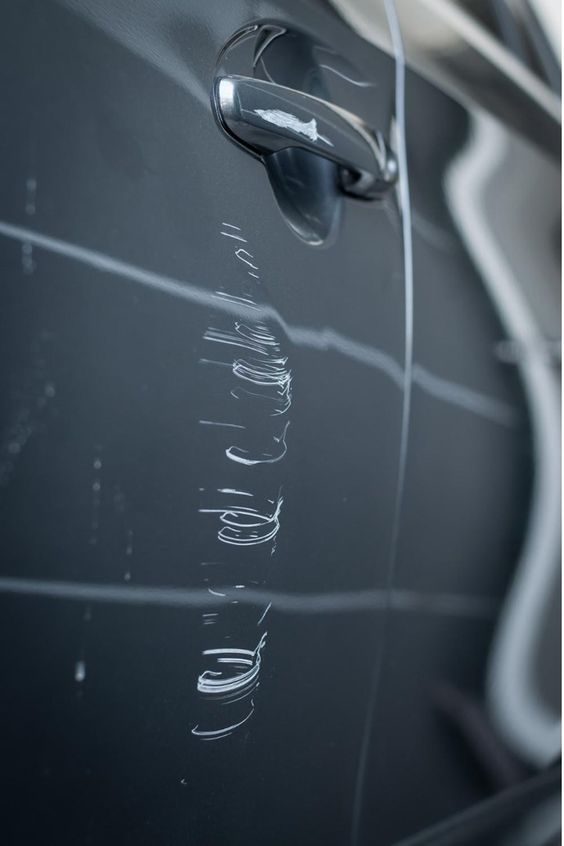Repair instructions
Understanding Car Scratches: Types and DIY Fixes
Summary:
When it comes to car scratches, the key to restoring your vehicle’s appearance is understanding the depth of the damage. There are three main types of scratches—clear coat, color coat, and primer scratches—each requiring different repair approaches. Armed with the right knowledge and tools, you can tackle many minor scratches yourself, while more extensive damage might need professional attention.
The 3 Main Types of Car Scratches
Car scratches can be grouped into three categories, depending on how deep the damage goes into your vehicle’s paint layers. Identifying the type of scratch is essential to determine the best repair method.

1. Clear Coat Scratches
The clear coat is the outermost layer of your car’s paint, designed to protect the underlying layers and provide that glossy finish. Because it’s the first line of defense, the clear coat is often the most vulnerable to light scratches caused by washing mishaps or contact with sharp objects (like keys or branches).
Repair:
These scratches don’t usually penetrate past the clear coat, so they’re primarily cosmetic. In many cases, you can remove light clear coat scratches with a polishing compound or a scratch remover applied with a microfiber towel. Just be cautious not to overdo it, as excessive rubbing can wear down the clear coat.
2. Color Coat Scratches
The color coat (or base coat) is the next layer beneath the clear coat and gives your vehicle its distinctive color. Scratches here are typically deeper, but not deep enough to reach the metal. Color coat damage often occurs from minor collisions, like brushing up against a tree branch, or intentional scratching.
Repair:
For minor color coat scratches, you can use touch-up paint to blend the damage. However, if the damage is more extensive, it’s best to leave the repair to a professional. Repainting will help restore the vehicle’s original appearance and ensure the integrity of the paint job.
3. Primer Scratches
The primer coat is applied directly to the vehicle’s metal frame and serves as a base for the color coat. Primer scratches are the most serious, as they expose the metal, which can lead to rust if left untreated. These are typically caused by more significant impacts or accidents.
Repair:
Primer scratches should be addressed as soon as possible to prevent rust. Depending on the severity, this repair usually requires professional help to properly sand, prime, and repaint the affected area. Ignoring primer scratches can lead to more extensive rust damage over time and could negatively affect your car’s resale value.
Other Types of Scratches
While the paint layers are the most common sources of scratches, don’t forget about other parts of your car. Bumpers, plastic trim, headlights, and windows can all be scratched as well. Depending on the material, different approaches may be needed for effective repair.
Preventing Scratches: Pro Tips
Even with the best of care, it’s hard to avoid scratches entirely, but there are steps you can take to reduce the risk:
1. Use Proper Washing Tools
A hasty wash can leave debris trapped in your sponge or cloth, which could scratch your vehicle’s paint. Invest in high-quality microfiber towels, soft sponges, and a good bucket with a grit guard to minimize the risk of scratches. Replace your washing tools regularly to maintain their effectiveness.
2. Apply Wax for Protection
A fresh coat of wax can add an extra layer of protection to your vehicle’s paint, helping to prevent surface-level scratches. It won’t stop deep scratches from happening, but it will provide a barrier against minor abrasions.
Tips for Waxing:
- Wash and dry the surface thoroughly before waxing.
- Use a clay bar to prep the surface for a smoother finish.
- Apply wax in small, even layers—multiple thin coats are better than one thick layer.
- Avoid waxing in direct sunlight or on hot surfaces, as this can cause the wax to dry too quickly and create streaks.
How Much Does It Cost to Fix Car Scratches?
Repairing car scratches can vary widely in cost, depending on the severity of the damage and the type of vehicle. Minor repairs, like clear coat touch-ups, may cost as little as $50 to $100. More extensive repairs involving repainting or addressing primer scratches can range from $300 to $2,000 or more. For a medium-priced sedan, expect to pay an average of $650 for professional repairs.
If your car’s scratches are a result of an accident, check with your insurance company to see if your policy covers the repair costs.
Where to Find Car Wax and Other Repair Products
Protecting your vehicle from scratches starts with using quality products. You can find a wide range of car waxes—both synthetic and carnauba-based—at retailers.
Protect Your Ride:
Whether you’re fixing minor scratches or preventing future ones, investing in high-quality car care products is key. Browse our selection of top-rated car waxes today and keep your vehicle looking sharp for years to come.
